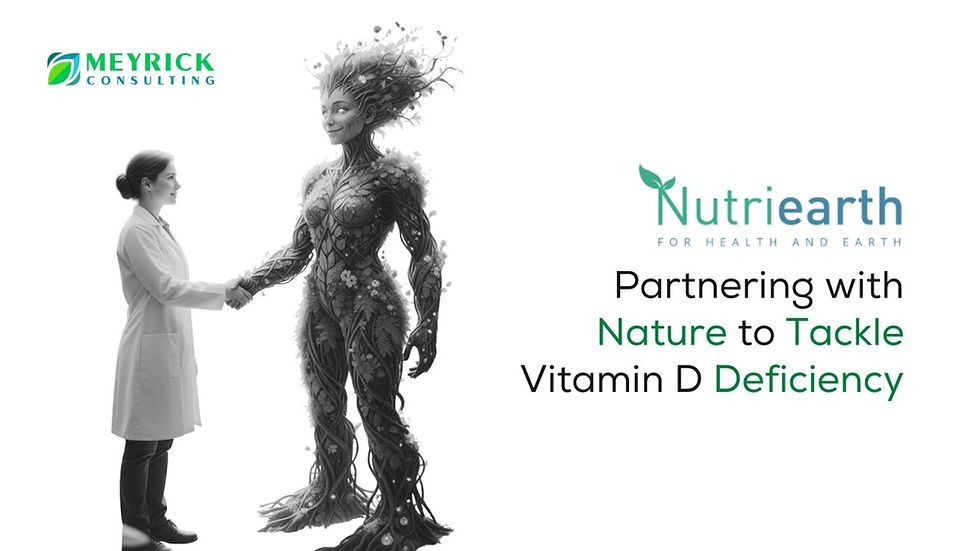Killing Cows - The Need to Feed
- Meyrick Consulting

- Feb 3, 2023
- 4 min read

Gone are the days of traditional agriculture, the future is all about plants! From kale to quinoa, the possibilities are endless. Say goodbye to meat sweats and hello to leafy greens. Plant-based is the way of the future.
Right?
With the negative press around environmental impact, and claims of plant-based being better for our health. Today, consumers are turning to plant-based options in droves, and the traditional meat industry is taking notice. So, what's behind this shift and where do we see traditional meat and farming in ten years' time?
Killing Cows
This shift towards plant-based foods is having a real and measurable impact on the traditional meat industry. In the last five years, sales of traditional meat products have suffered a loss of $16 billion. As consumers continue to move away from animal products, the traditional meat industry has needed to adapt to remain relevant.
Some traditional food categories have seen a decline in sales. For example, dairy milk sales in the United States have declined by 15% since 2015, while plant-based milk sales have increased by 9% in the same period. Similarly, sales of eggs have declined by 2% while sales of plant-based egg alternatives have increased by over 20%.
The 17% fall in meat consumption over the last decade in the UK is also being powered by a national food strategy laid out by the government quoting "85% of farmland is used to grow feed for livestock and we need some of that land back", the UK government are pushing to a 30% reduction as reported by The Guardian.
Bloomberg has reported US meat sales at grocery stores down by over 12% compared to 2020. Argentina, home to one of the world’s most carnivorous populations, per-capita beef consumption has dropped almost 4% from 2020.
It's important to note that while the rise of plant-based food has resulted in a shift in consumer spending, it has also created new business opportunities and opened up new markets for manufacturers. Companies that have been quick to adapt and incorporate plant-based options into their product offerings have seen significant growth and success.
But is all of this good? - in the broader sense of the word. With so many factors being affected by this dramatic economic change - there has to be victims along the way, right?
"The Rise of Plant-Based Foods: A Growing Trend"
Of course, the rise of plant-based food has had a significant impact on the traditional meat industry. As more consumers become convinced of the environmental and health implications of a diet high in animal products, there has been a growing demand for alternative sources of protein options. This has resulted in an increase in the availability and popularity of plant-based meat alternatives.
This shift in consumer behaviour has led some traditional meat companies to respond by investing in or acquiring plant-based meat companies, or by developing their own plant-based products. Other companies have chosen to focus on improving the sustainability of their traditional meat production processes, such as reducing greenhouse gas emissions and improving animal welfare practices.
Overall, the traditional meat industry has had to adapt to the changing market and evolving consumer preferences, as the rise of plant-based food continues to reshape the food industry and reconfiguring the addressable market.
Evolve or die...
Will plant-based foods completely replace traditional agriculture? It's unlikely.
However, the industry will need to change in order to meet the demands of consumers. This could mean investing in plant-based alternatives, incorporating more sustainable practices into traditional farming methods, or developing new technologies to make traditional meat production more environmentally friendly.
It is unlikely that plant-based agriculture will completely replace traditional agriculture in the near future. While plant-based agriculture has seen an increase in popularity in recent years due to growing concerns about the environmental impact of animal agriculture and ethical considerations for animal welfare, traditional agriculture is still a major source of food for the global population and is deeply ingrained in many cultures and economies.
Additionally, there are still many technical and logistical challenges to overcome in order to scale up plant-based agriculture to meet the food demands of the world's growing population. However, it is possible that plant-based agriculture could become a significant supplement to traditional agriculture, and could play an important role in helping to feed the world's population in a more sustainable and ethical way.
The answer is in the technology
It's clear that the industry will need to evolve, and developing new technologies to reduce the impact livestock has on our environment are already being used. It is my hope this technology and others will save the industry from itself.
The traditional meat and agriculture industries are facing a challenge, but they're also facing an opportunity. As consumers continue to seek out healthier and more ethical food options, it's up to these industries to adapt and evolve.
There will always be new threats to any industry, but it's the constant innovation by the leaders in these industries that can change the course of, what is currently, a declining market.
With the right strategies in place, there's no reason why they can't thrive in the coming years.
What is your impression of the traditional meat industry? Are livestock really to blame for all of our climate conundrums? How does the industry thrive without killing the planet?




Comments